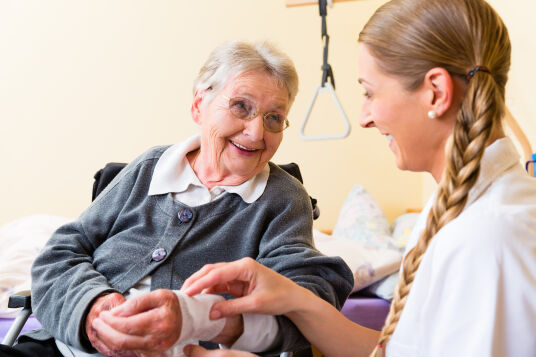Health & Wellbeing
Move Your Butt: empowering men to confront bowel cancer in New Zealand
June 06, 2023

Bowel cancer, the second most commonly diagnosed cancer in New Zealand, poses a significant health risk. However, initiatives like the "Move Your Butt" charity event are making a difference. This remarkable campaign raises awareness and promotes early detection among men, aiming to empower them to take control of their health.
Understanding Bowel Cancer
Bowel cancer, or colorectal cancer, involves abnormal cell growth in the colon or rectum. It typically starts as noncancerous polyps that can become cancerous over time. Symptoms include changes in bowel habits, blood in the stool, abdominal pain, unexplained weight loss, and fatigue. Early detection is crucial for successful treatment.
The "Move Your Butt" Charity Event
The "Move Your Butt" charity event is a significant initiative in New Zealand. It educates men about bowel cancer risk factors, symptoms, and screening options. By encouraging open conversations, breaking down stigmas, and promoting regular screenings, the campaign empowers men to prioritize their health.
Key Objectives of the Campaign:
Raising Awareness: The "Move Your Butt" campaign provides accurate information about bowel cancer, helping individuals recognize potential signs and seek medical attention promptly.
Encouraging Screening: Screening through the National Bowel Screening Programme is important for early detection and prevention. You will be invited to attend around the time you turn 60, and a test kit will be sent to you. More information about the screening programme can be found here.
Breaking the Stigma: By fostering supportive environments and encouraging discussions about bowel health, the campaign breaks down stigmas associated with bowel cancer.
Fundraising for Research and Support: The campaign raises funds for research, patient care, and public education programs to improve prevention, treatment, and support for those affected by bowel cancer.
Getting Involved
You can make a difference by:
Spreading the Word: Share information about bowel cancer and the "Move Your Butt" campaign with others through social media and local community groups.
Participating in Events: Join fundraising events such as fun runs, charity walks, and cycling challenges to show support and connect with others.
Donating: Contribute to fundraising efforts to support research, patient care, and awareness initiatives.
Prioritizing Your Health: Understand the risk factors, maintain a healthy lifestyle, and discuss any concerns with your healthcare provider.
By participating in the "Move Your Butt" campaign, you contribute to reducing the burden of bowel cancer in New Zealand. Together, we can promote early detection, break stigmas, and empower men to prioritize their health. Join the movement and make a lasting impact on men's bowel cancer awareness. Move your butt for bowel cancer awareness today!
Disclaimer: This article is for informational purposes only and should not substitute professional medical advice. Consult a healthcare professional for concerns about your health or if you experience any symptoms.
Sources:
https://www.timetoscreen.nz/bowel-screening


